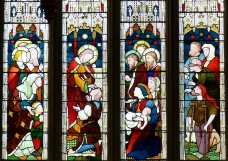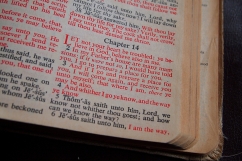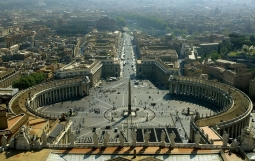Not for the first time the doctrine of papal infallibility has been called into question by a Catholic theologian.
Hans Kung, a Catholic priest and Swiss theologian, has challenged the teaching of papal and bishops' infallibility numerous times. Eventually he was punished for his insubordination by having his his licence to teach withdrawn in 1979-80. His latest book, Infallibility, has been published alongside a call for Pope Francis to permit "an open and impartial discussion on infallibility of Pope and bishops".
The full text of his "urgent appeal" is published in the National Catholic Recorder and The Tablet, where Kung says his request is "not in order to destroy but to build up the Church".
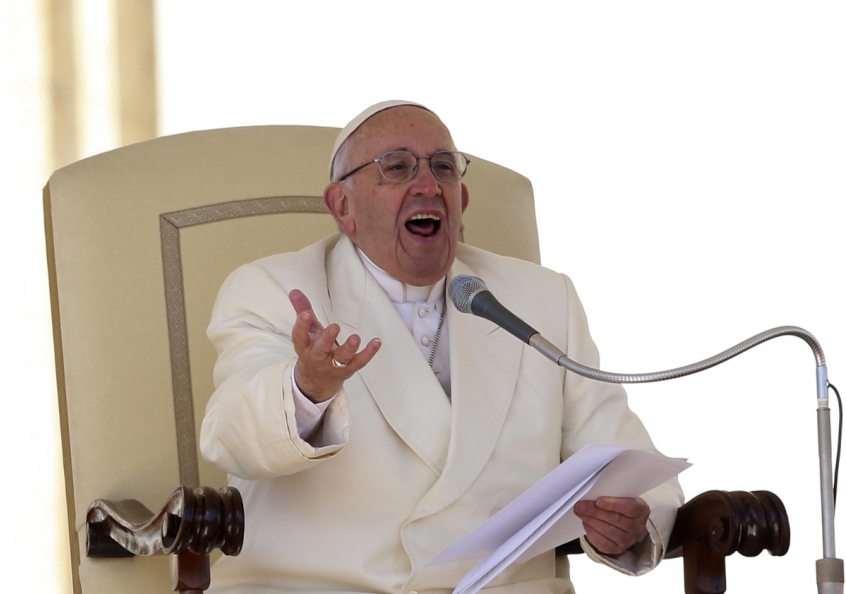
Protestants, and in particular evangelicals, have long regarded papal infallibility as being the ultimate sign of Church corruption. The bestowal of such authority onto one man is, in their eyes, not only heretical but dangerous.
Some of the criticism is based upon a misunderstanding of the Catholics' teaching but there is one crucial difference: authority.
As much as evangelicals like to ridicule papal infallibility, they believe in infallibility too. The difference is that evangelicals place the burden of infallibility on the Bible, not on Church teaching or a church leader.
There is much debate and difference among evangelicals over their doctrine of infallibility but in most "orthodox" evangelical circles it is taken for granted – though there are many definitions of "infallibility" and it's worth bearing that in mind before evangelicals launch into a tirade against what they believe are the failings of Catholic doctrine.
What is the Catholic doctrine of infallibility?
Official Catholic teaching is that when the Pope makes an official statement, or speaks 'ex cathedra', his words are infallible. This means they are without error and cannot be challenged or contradicted.
The Second Vatican Council in the 1960s reviewed a host of Church teaching and decided to extend infallibility to all bishops across the world when they proclaimed a united statement. Since 1870, infallibility had been a luxury reserved for the pope.
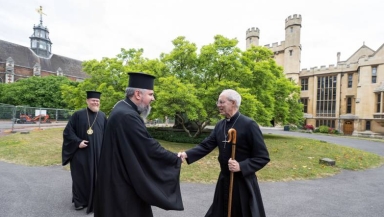
The common confusion for evangelicals is between infallibility and impeccability. Just because Catholics believe the Pope is infallible, it does not mean they think he can't sin. Papal history would render this doctrine farcical if infallibility meant "without sin".
It does not even relate to the Pope's day-to-day proceedings. Pope John XXIII once perplexed students by saying: "I am not infallible". At the look of consternation on their faces he explained: "I am only infallible when I speak ex cathedra, but that is something I will never do."
To put it in context, the last time a Pope spoke ex cathedra was on November 1, 1950 and this was to affirm Mary's assumption into heaven after living a perfect life as Church dogma.
There are also a numbers of caveats and qualifications to the Pope's infallibility. He cannot contradict a previous infallible announcement as this would render the previous Pope fallible. He also is only infallible on matters of "faith and morals". Many Catholic theologians have also argued that the Pope is only infallible with the consent of the whole Church, so not independently from the bishops but only when he speaks with one voice for them all.
Has the Catholic Church always believed in papal infallibilty?
No. The definition of papal infallibility was first formalised in 1870 at the First Vatican Council which is relatively recent in terms of Church history and tradition.
However Catholics will argue it has always been a part of Church teaching, even when it wasn't formalised. They point to Christ's mandate to the Church and the promise of the Holy Spirit to "guide you into all the truth" (John 16:13) as a sign of ecclesiological infallibility.
Is there likely to be a change in doctrine?
Kung himself recognises change is not imminent. "I would not like to raise the hopes of many in our church unrealistically," he wrote in his appeal. "The question of infallibility cannot be solved overnight in our church."
Outright change of doctrine seems unlikely. What is far more probable is Catholic seminaries and theologians will gradually start debating and questioning the doctrine with more freedom and not have their licences withdrawn.
There is also the question of whether we will ever see an ex cathedra papal pronouncement again. Given that it has been 66 years since the last one and with no sign Pope Francis' approach is one of authoritarian pronouncements, it may be the doctrine of infallibility will lessen in influence.
In the same way the Queen is head of the state in the UK and can veto laws but never does, I expect infallibility to become a part of Catholic doctrine that has minimal practical implications. It will occasionally rouse criticism without ever actually needing to be disavowed and will quietly be ignored until it is nothing but a quaint remnant of history.










